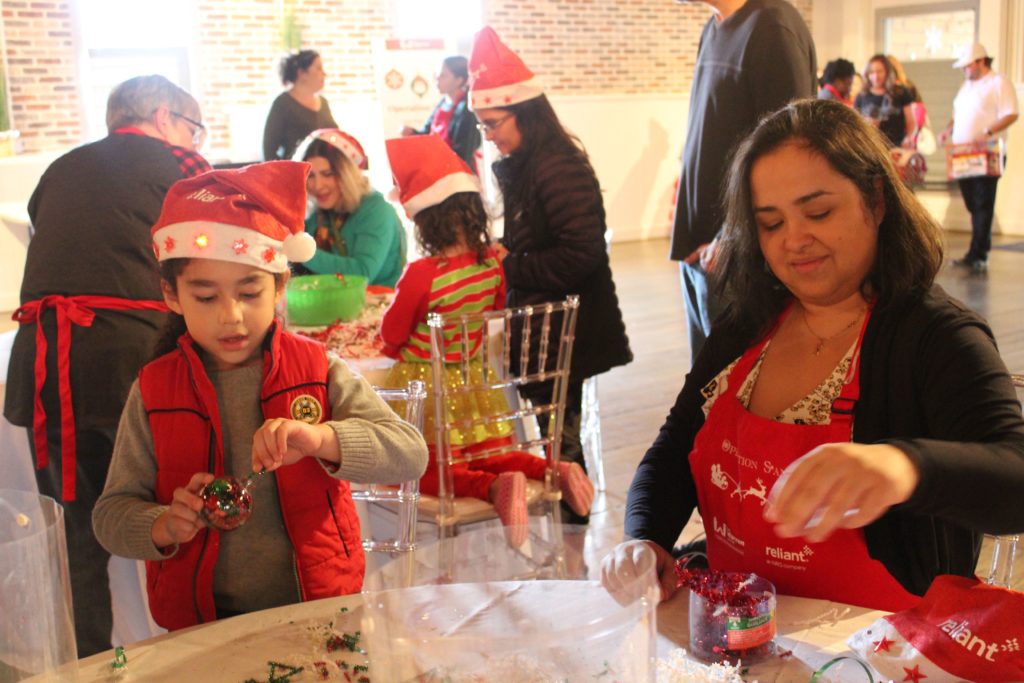 While most children find the winter holiday season to be exciting and joyful, many special needs kids struggle this time of year. The lights, sounds, and crowds can be overwhelming for kids with developmental delays and disabilities. The experts at The Warren Center have found ways to control the chaos to create an experience that is fun for the whole family at their annual Operation Santa event.
While most children find the winter holiday season to be exciting and joyful, many special needs kids struggle this time of year. The lights, sounds, and crowds can be overwhelming for kids with developmental delays and disabilities. The experts at The Warren Center have found ways to control the chaos to create an experience that is fun for the whole family at their annual Operation Santa event.
The experts at The Warren Center recommend the following tips to have a sensory-friendly holiday:
Avoid sensory overload.
Consider shopping online or having someone pick up gifts for you. The crowds, sounds and lights of a busy mall can be overwhelming for a child with developmental delays and disabilities.
Choose sensory-friendly options.
Flashing lights on a Christmas tree might be overwhelming to a child with developmental delays and disabilities, but a strand of lights that gently changes lights might be a good alternative. Most LED Christmas lights offer softer alternatives to enjoy the twinkling. To avoid waiting in long lines to see Santa, do your homework to see what sensory-friendly shops and events are happening around town, or consider hosting your own “visit from Santa” at home.
Wrap gifts so they’re easy to open.
Many kids with disabilities have poor motor skills, so a gift with too much tape or extra ribbons can be extremely frustrating. Make unwrapping gifts easier by loosely wrapping with just a few pieces of tape or put everything in fun gift bags.
Always sit near the exit
Whether you’re attending a religious service or watching the Nutcracker, plan in advance to find seats on the aisle or near the closest exit. This way, if your child needs to take a break and go outside—or if perhaps the whole family needs to leave—you can do it quickly, without disturbing anyone.
Bring your child’s favorite foods and comfort items.
Many kids with special needs are picky eaters, so sitting down for a traditional holiday meal—with unfamiliar foods such as roasted goose, ham, or brisket—can be a challenge. Pack a lunchbox with a few of your child’s favorite foods, so hunger doesn’t add to the stress. Consider also bringing your child’s favorite toy, book, or tablet to help your special needs child feel as comfortable as they can be.


